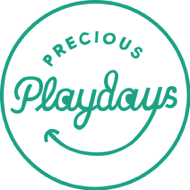We all learn and digest information in different ways. If you prefer to read rather than watch a video, I’ve got you, here is the dialogue from the video:
Eating around a table in early childhood holds profound importance beyond mere sustenance—it serves as a cornerstone for social, emotional, and cognitive development. This ritual fosters a sense of togetherness and belonging within the family or community, providing a valuable opportunity for children to bond with caregivers and peers. Sitting around a table encourages communication and conversation, allowing children to practice turn-taking, listening, and expressing themselves effectively. Moreover, this shared experience promotes healthy eating habits and mealtime routines, as children observe and model the behavior of those around them. Additionally, the structured environment of a table setting supports the development of fine motor skills and self-regulation, as children learn to use utensils and navigate appropriate behavior during mealtime. Overall, eating around a table in early childhood establishes a foundation for social skills, healthy habits, and family connections that extend far beyond the dining room.
Routine is of paramount importance in early childhood, providing a sense of stability, predictability, and security for young children as they navigate the complexities of their world.
Consistent routines establish a framework that helps children understand expectations, anticipate events, and feel in control of their environment.
Through daily routines such as dinner, bath, brush teeth, read a book, go to bed, children develop a sense of order and mastery over their surroundings, promoting emotional regulation and reducing anxiety.
Routines facilitate the development of important life skills such as time management, organization, and self-discipline. They also provide valuable opportunities for learning and social interaction, as children engage in predictable activities with caregivers and peers. Overall, routines in early childhood play a fundamental role in promoting emotional well-being, fostering independence, and laying the groundwork for future success.
Please note, time is not important! By “routine” we do not mean fill the day with activities or do things “on time.” It is the cycle that is important. After dinner comes bath time, before dinner was playtime, etc.

